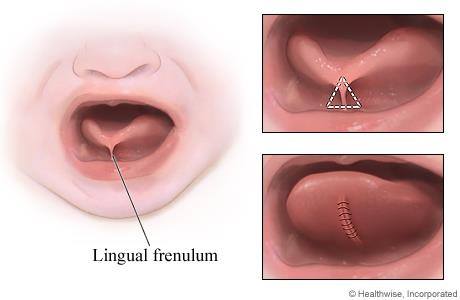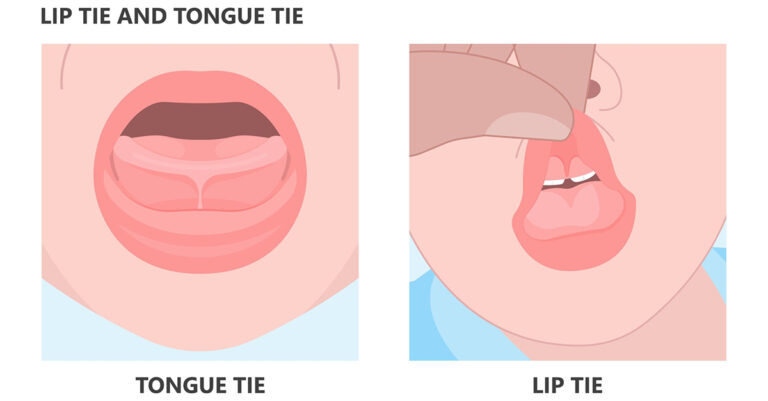Imagine watching your child grow, eagerly awaiting their first words, only to find that speech seems to come slower than expected. It’s natural to feel concerned and wonder about the reasons behind this delay.
One possible cause that might not be on your radar is a condition known as tongue tie. Could this be affecting your child’s speech development? You aren’t alone in asking this question. Many parents are seeking answers to whether tongue tie can cause speech delays in their children.
This article will shed light on what tongue tie is, how it can impact speech, and what steps you can take to address it. Stay with us as we explore this crucial topic, offering insights that could make a difference in your child’s communication journey.
Tongue Tie Basics
Understanding the basics of tongue tie is crucial for parents. Tongue tie, medically known as ankyloglossia, can affect speech development. It occurs when the tissue connecting the tongue to the floor of the mouth is too short or tight. This restriction can lead to challenges in speech, eating, and oral hygiene. Knowing the definition and types helps address concerns early.
Definition And Characteristics
Tongue tie is a condition present at birth. It limits tongue movement. The tongue remains tethered to the mouth’s floor. Key characteristics include difficulty with speech sounds, breastfeeding, and swallowing. A tongue tie can vary in appearance. Some are barely noticeable, others are more pronounced. The tongue may appear heart-shaped. Speech issues often arise due to limited mobility.
Types And Severity Levels
Tongue ties vary in type and severity. Anterior tongue tie affects the front part of the tongue. Posterior tongue tie impacts the tongue’s base. Each type has different implications for speech. Severity levels can range from mild to severe. Mild cases may show slight restrictions. Severe cases can cause significant speech issues. Early identification is vital. Treatment options depend on severity. Addressing tongue tie early can prevent speech delays.

Credit: www.ourfamilyworld.com
Speech Development Process
The speech development process is a fascinating journey that begins in infancy and continues through early childhood. As children grow, they start to mimic sounds, form words, and eventually construct sentences. This progression is essential for effective communication. But what happens when a child faces a physical barrier like tongue tie? Could it potentially delay speech development?
Normal Speech Milestones
Speech milestones are critical checkpoints that indicate a child’s progress in language development. By six months, babies typically start to babble with varied sounds. By their first birthday, many children can say simple words like “mama” or “dada.” Between 18 months and two years, children often have a vocabulary of around 50 words and begin to combine them into short phrases.
As they approach three years, kids usually can form short sentences and are understood by family members. These milestones might vary, but they provide a general framework for assessing speech development. If you notice significant deviations, it might be worth exploring underlying causes like tongue tie.
Factors Influencing Speech
Several factors can influence speech development, and tongue tie is just one of them. Genetics play a role; if speech delay runs in the family, it might be inherited. Environmental factors such as exposure to language and social interaction also significantly impact speech skills.
Physical conditions like tongue tie can restrict tongue movement, affecting articulation. It’s worth noting that not all children with tongue tie experience speech delays. Some may compensate well, while others might struggle. Observing your child’s communication efforts can offer insights into their speech journey.
Have you ever noticed how quickly children pick up words from their surroundings? This highlights the power of observation and mimicry in speech development. Encouraging interactive play and conversations can stimulate speech growth, helping children overcome minor hurdles.
If you’re concerned about speech delays, consider seeking advice from a pediatrician or speech therapist. They can provide assessments and tailored strategies to support your child’s speech development. Have you had experiences where early intervention made a difference? Sharing your journey might encourage other parents navigating similar challenges.
Tongue Tie And Speech Delay
Tongue tie is a condition that may affect your child’s ability to speak clearly. It’s a physical limitation where the tongue’s movement is restricted due to a short or thick band of tissue. This can lead to speech challenges, but does it really cause speech delay?
The connection between tongue tie and speech delay is not straightforward. Many parents worry when they notice their child struggling to articulate words. But how much of this is due to tongue tie?
Tongue tie might impact speech in some children. It can make it difficult to produce certain sounds, especially those that require precise tongue movements like “t,” “d,” “l,” and “r.”
Imagine trying to pronounce these sounds with your tongue tied down. You might find it challenging to communicate effectively. Could this delay speech development?
Yet, not all tongue-tied children experience speech issues. Many adapt and develop normal speech. It’s a mixed bag, which makes it crucial to consider individual differences.
Research on tongue tie and speech delay presents varied results. Some studies suggest a link between tongue tie and speech difficulties, but they also highlight that not all children with tongue tie have speech delays.
For example, a study might find that a small percentage of children with tongue tie face speech challenges. But another study might show children overcoming tongue tie without any speech delay.
This inconsistency raises questions: Should tongue tie be treated to prevent speech delay? Or is it better to wait and see how a child’s speech develops naturally?
Ultimately, it’s crucial to weigh the evidence, consult healthcare professionals, and make informed decisions. Your child’s unique circumstances should guide your choice.
What are your thoughts on this? Have you encountered tongue tie and speech delay in your own life or with someone you know? Your insights could help others navigate these concerns.
Diagnosis And Identification
Tongue tie might lead to speech delay by restricting tongue movement, impacting pronunciation. Early diagnosis is crucial. Identifying tongue tie involves observing difficulties in sounds and feeding.
Understanding the diagnosis and identification of tongue tie is crucial if you suspect it might be impacting speech development. It can be a relief to identify the issue early, and with the right information, you can take action to support your child’s communication skills.Signs And Symptoms
Tongue tie can present itself with some noticeable signs. Does your child struggle with feeding, or do they have difficulty sticking out their tongue? These could be indicators. You might notice that your child has trouble pronouncing certain sounds. They might say “th” instead of “s” or avoid words that require tongue elevation. Observe if your child complains of discomfort in their mouth. Sometimes, tongue tie can make eating and speaking a bit challenging.Professional Evaluation
Consulting a professional can give you clarity. A pediatrician or speech therapist can offer insights into whether a tongue tie is affecting speech. During evaluations, experts often look for restricted tongue movement. They might ask your child to perform simple tongue exercises to assess mobility. Have you considered asking your child’s dentist? Dentists can also play a role in diagnosing tongue tie as they regularly check oral health. A professional evaluation can guide you towards potential treatments. Sometimes, a simple procedure can make a world of difference in your child’s speech development. Have you ever wondered how early intervention could change the course of your child’s speech journey? Identifying and addressing tongue tie promptly might be the key to a brighter communication future.Treatment Options
Recognizing and treating tongue tie is essential for speech development. There are various treatment options available for tongue tie. These options aim to improve speech and communication skills. Each method offers unique benefits and considerations.
Surgical Interventions
Surgical procedures are often recommended for tongue tie. These interventions can include a frenectomy or frenuloplasty. A frenectomy involves cutting the tight tissue beneath the tongue. This procedure is quick and often done under local anesthesia. Frenuloplasty is a more complex surgery. It involves repositioning the tissue for better tongue mobility.
Both procedures can enhance tongue movement. Improved movement may help speech clarity. Surgeons assess the severity before recommending surgery. Parents should discuss potential risks and benefits with a surgeon.
Speech Therapy
Speech therapy is a non-invasive treatment option. It helps children with tongue tie improve speech skills. Therapists design exercises to strengthen tongue muscles. These exercises focus on articulation and pronunciation. Regular sessions can lead to noticeable improvements.
Speech therapists work closely with children. They tailor programs to individual needs. Therapy can complement surgical interventions. Combining surgery with therapy often yields the best results. Parents should consult a speech therapist for personalized advice.

Credit: www.facebook.com
Controversies And Misconceptions
Tongue tie, a condition where the tongue’s range of motion is restricted, has sparked debates. Many parents worry it might lead to speech delays in children. This topic is filled with controversies and misconceptions. Experts have different opinions, and myths often cloud the truth.
Debates Among Experts
Some experts believe tongue tie affects speech development. They argue that limited tongue movement hinders pronunciation. Others claim it’s not a major factor in speech delay. These professionals suggest examining other causes. The debate continues, with no clear consensus. Parents often find themselves confused by conflicting advice.
Common Myths
Many myths surround tongue tie and speech delay. Some believe all children with tongue tie will struggle with speech. This is not always true. Speech problems can arise from many factors. Another myth is that surgery is the only solution. In reality, some cases improve without intervention. Misunderstandings can lead to unnecessary worry. It’s important to separate fact from fiction.
Personal Stories And Experiences
Many parents share personal stories of tongue tie affecting their child’s speech. Speech delay is a common concern. Experiencing similar challenges, they often seek advice and support. Understanding these experiences helps others navigate this journey.
Personal stories and experiences offer a unique perspective on the impact of tongue tie on speech delay. They provide relatable insights that help parents and caregivers feel less alone in their journey. Hearing from those who have walked the same path can be both comforting and enlightening.Parents’ Perspectives
Many parents have shared their emotional rollercoaster when they first suspected their child had a tongue tie. The initial worry often leads to a quest for answers, with some parents feeling frustrated by a lack of immediate solutions. Jessica, a mother of two, recounted how she noticed her son struggling with certain sounds. Her pediatrician initially dismissed her concerns, attributing the delay to a typical developmental variation. Trusting her instincts, Jessica sought a specialist who confirmed the tongue tie diagnosis. Have you ever felt unheard by professionals? This story echoes many parents’ experiences and highlights the importance of advocating for your child’s needs.Success Stories
Success stories show the potential for positive outcomes when addressing tongue tie early. They offer hope and direction for those feeling overwhelmed by the diagnosis. After her son’s frenectomy (a minor surgical procedure to correct tongue tie), Jessica reported noticeable improvements in his speech clarity within months. Speech therapy sessions that once seemed stagnant became more fruitful. Her story is not unique; many parents have witnessed significant progress post-treatment. These success stories emphasize the power of early intervention. They serve as a reminder that proactive steps can lead to meaningful changes in your child’s communication skills. What steps are you considering for your child’s speech development? Personal stories remind us that while every journey is unique, shared experiences can guide and inspire.
Credit: therapyworks.com
Frequently Asked Questions
How To Know If A Tongue-tie Is Causing Speech Problems?
Observe if your child struggles with speech clarity. Consult a speech therapist for an assessment. They can identify tongue-tie-related issues. Early intervention improves speech development and quality. Consider treatment options like surgery if recommended. Regular check-ups ensure progress and address speech concerns effectively.
Does Cutting A Tongue-tie Help With Speech?
Cutting a tongue-tie can improve speech in some cases. It allows better tongue movement. Consult a speech therapist or doctor for guidance. Results vary depending on age and severity.
Can A Tongue-tie Cause Developmental Delays?
A tongue-tie can potentially cause speech and feeding difficulties. These issues might lead to developmental delays. Early intervention and consultation with a healthcare professional are crucial to address and manage these challenges effectively.
Is Speech Therapy Required After Tongue-tie Surgery?
Speech therapy often aids recovery post tongue-tie surgery. It helps improve speech clarity and oral function. Therapists tailor exercises to individual needs, enhancing tongue mobility and articulation. Early intervention can accelerate progress and ensure effective communication skills. Consult a speech therapist to assess specific requirements after surgery.
Conclusion
Tongue tie can impact speech development in some children. Early diagnosis helps address issues sooner. Consult a healthcare professional for tailored advice. Treatment options vary based on severity and individual needs. Speech therapy might assist in improving communication skills. Parents should observe their child’s speech progress closely.
Early intervention can make a difference. Each child’s situation is unique. Understanding the potential effects of tongue tie is crucial. Awareness leads to better outcomes. Encourage regular check-ups and follow professional guidance. Supporting speech development fosters confidence and growth in children.

